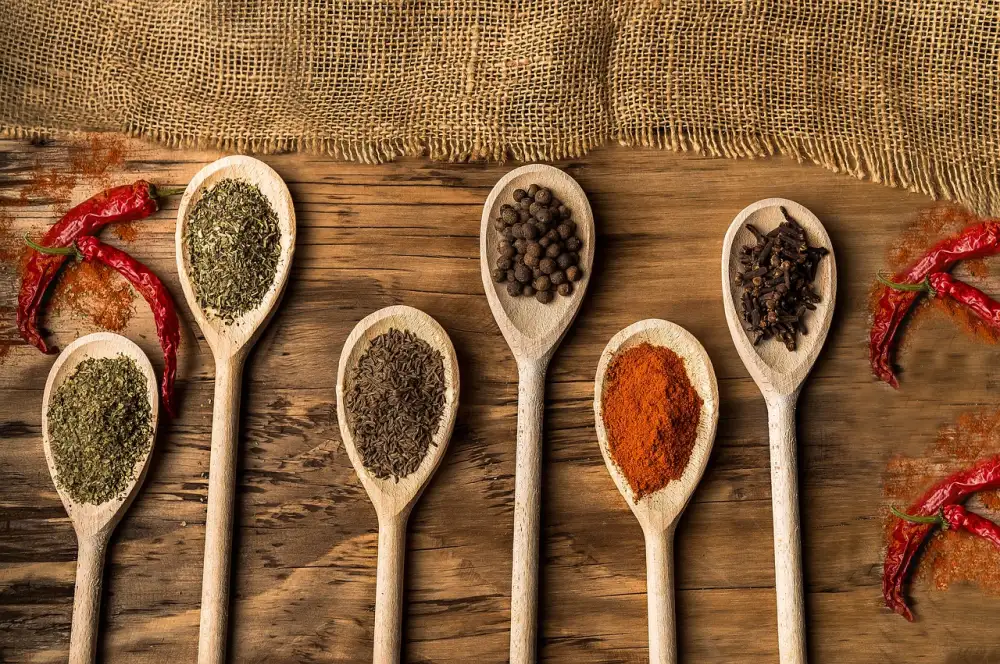Discover the Safest Non-Toxic Kitchen Appliances for a Healthy Home

In today's fast-paced world, where convenience often takes precedence over health, it is crucial to pay attention to the safety of our kitchen appliances. Many traditional kitchen appliances contain harmful substances that can leach into our food and pose serious risks to our health. That's why it is essential to discover and invest in non-toxic kitchen appliances that promote a healthy home environment. In this article, we will explore the importance of non-toxic kitchen appliances, their benefits, common harmful substances found in conventional appliances, tips for choosing non-toxic options, and the top non-toxic kitchen appliances to consider. By making informed choices about the products we use in our kitchens, we can ensure the well-being of ourselves and our loved ones.
Importance of non-toxic kitchen appliances
The importance of non-toxic kitchen appliances cannot be overstated. These appliances come into direct contact with our food, and any harmful substances they may contain can easily leach into what we consume. This poses a significant risk to our health and well-being. Studies have shown that exposure to toxic substances in kitchen appliances can lead to various health issues, including respiratory problems, hormonal imbalances, and even certain types of cancer. Therefore, it is crucial to prioritize the use of non-toxic kitchen appliances in order to maintain a healthy home environment.
Benefits of using non-toxic kitchen appliances
Using non-toxic kitchen appliances offers numerous benefits for a healthy home. Firstly, these appliances do not release harmful chemicals or toxins into the air, ensuring better indoor air quality. This is especially important in small spaces where ventilation may be limited. Secondly, non-toxic appliances are safer for food preparation as they do not leach harmful substances into the food during cooking or storage. This helps to maintain the nutritional value and taste of the food. Additionally, using non-toxic appliances reduces the risk of long-term health effects associated with exposure to toxic substances such as heavy metals and volatile organic compounds (VOCs). By investing in non-toxic kitchen appliances, you can create a safer and healthier environment for yourself and your family.
Common harmful substances found in kitchen appliances
Common harmful substances found in kitchen appliances include:
1. BPA (Bisphenol A): This chemical is commonly used in the production of plastic food containers and can leach into food when heated. BPA has been linked to hormonal imbalances, reproductive issues, and an increased risk of certain cancers.
2. Phthalates: These chemicals are often found in plastics used for food storage and can also migrate into food. Phthalates have been associated with developmental issues in children, hormone disruption, and respiratory problems.
3. Perfluorinated compounds (PFCs): PFCs are commonly used in non-stick coatings on cookware and can release toxic fumes when heated at high temperatures. These substances have been linked to kidney and liver damage, as well as potential harm to the immune system.
4. Lead: Older kitchen appliances may contain lead-based paints or soldering materials which can contaminate food. Lead exposure has been associated with cognitive impairments, developmental delays, and other health issues, particularly in children.
5. Flame retardants: Some kitchen appliances may contain flame retardant chemicals such as polybrominated diphenyl ethers (PBDEs). These substances have been linked to hormone disruption, reproductive problems, and even cancer.
It is important to be aware of these harmful substances when choosing kitchen appliances to ensure a safer and healthier cooking environment for you and your family.
Tips for choosing non-toxic kitchen appliances
When it comes to choosing non-toxic kitchen appliances, there are a few key factors to consider. Firstly, look for appliances that are made from materials such as stainless steel or glass, as these are less likely to leach harmful substances into your food. Avoid appliances with non-stick coatings, as these often contain perfluorooctanoic acid (PFOA), which has been linked to health issues. Secondly, check for certifications such as the NSF (National Sanitation Foundation) seal, which ensures that the appliance meets strict safety standards. Additionally, research the brand's reputation and read customer reviews to ensure their commitment to producing non-toxic products. Lastly, opt for appliances with minimal electronic components and avoid those with excessive plastic parts. By following these tips, you can make informed choices and create a safer and healthier kitchen environment for you and your family.
Top non-toxic kitchen appliances to consider
1. Stainless steel cookware: Opt for stainless steel pots and pans, as they are durable, non-reactive, and do not release harmful chemicals into your food.
2. Glass food storage containers: Replace plastic containers with glass ones to avoid potential leaching of harmful chemicals into your leftovers.
3. Ceramic or cast iron cookware: These options are free from toxic coatings and provide even heat distribution, making them safe choices for cooking.
4. Slow cookers with ceramic inserts: Look for slow cookers that have ceramic inserts instead of non-stick coatings, as non-stick surfaces can release toxic fumes when heated.
5. Electric kettles with stainless steel interiors: Choose electric kettles with stainless steel interiors rather than plastic ones to prevent the leaching of chemicals into your hot beverages.
6. Juicers made from BPA-free materials: Ensure that your juicer is made from BPA-free materials to avoid potential exposure to this harmful chemical while enjoying freshly squeezed juices.
7. Air purifiers with activated carbon filters: Consider investing in an air purifier with activated carbon filters to remove airborne pollutants and improve indoor air quality in your kitchen.
By selecting these non-toxic kitchen appliances, you can create a healthier cooking environment and safeguard the well-being of yourself and your loved ones.
In conclusion, prioritizing non-toxic kitchen appliances is essential for maintaining a healthy home environment. By choosing appliances that are free from harmful substances, we can minimize our exposure to toxins and reduce the risk of health issues. The benefits of using non-toxic appliances include improved air quality, reduced chemical contamination in food, and a safer cooking experience. When selecting kitchen appliances, it is crucial to consider factors such as materials used, certifications for safety standards, and customer reviews. By making informed choices, we can create a safe and healthy kitchen space for ourselves and our loved ones.
Published: 01. 03. 2024
Category: Home



